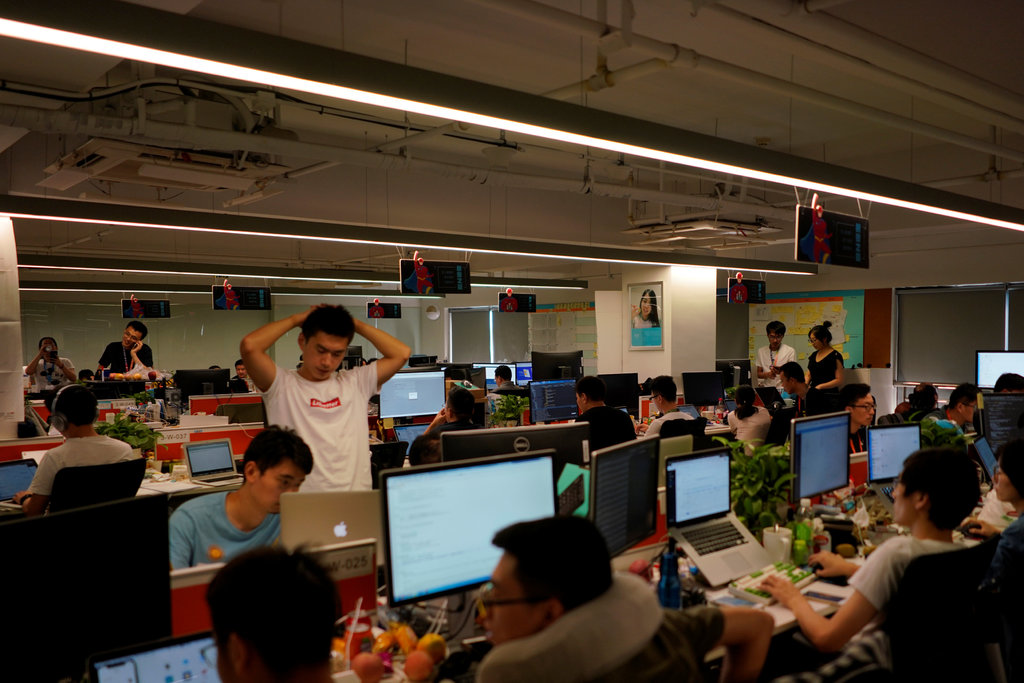In what is an escalation of the regulatory crackdown on tech companies by China, regulators have ordered app-store operators to remove ride-hailing app, Didi, from their stores.
Didi is the largest ride-hailing operator in China and facilitates no less than 20 million rides in China on a daily basis. For more context, Didi recorded 41 million transactions daily in the last 12 months ended March. Within that same period, it provided rides for 493 million active users.
In Q1 2021, it had 156 million monthly users and reported a revenue of about 42.2bn yuan, approximately $6.52 billion. A majority of that revenue came from its China mobility business which has now come under regulatory scrutiny.
Recent IPO and the target in its back
Didi was launched in 2012 by Cheng Wei with the hope of turning the startup into a global company that will use data to solve transportation and traffic problems. Hard at work on that path, Didi has made lots of progress, with the latest being a US IPO that raised north of $4 billion on June 30.


Three days later on July 2, the country’s Central Cyberspace Affairs Commission (CAC), announced it was investigating the e-hailing company whose valuation now stands at about $7 billion.
Also Read: Bitcoin miners flee China to escape crypto ban
The regulators accused Didi of illegally collecting the personal data of its users. China had earlier said that beginning May 1, companies should not force users to provide excessive data like biometrics especially when they are not needed. At the time though, there was no mention of any punishment for detractors or how the directive would be enforced.
Didi’s growth has made it a target too big for China to miss and the removal of its app means that new people will not be able to sign up. Existing users will be able to use the app and the company says it is already working on the corrections necessary to get the app back on the app stores.
Chinese authorities may just be getting started
Didi is not the first company to come under fire in China. Jack Ma’s Ant Group has been dragged through the muds of embarrassing dismemberment as the Chinese regulators continue to hack Ma’s tech empire into tiny, sometimes unrecognisable pieces.


Up until late last year, Ma was one of China’s billionaire darlings and the richest man in the country. However, he crossed a line with top administrators when he delivered a thought-provoking address where he invited the audience to consider the need for reform of the country’s financial system. He indirectly accused Chinese regulators of stifling innovation and said the banks suffered from a “pawnshop mentality”.
Also Read: Global Tech Roundup: Jack Ma is no Longer China’s Richest Man
The address, which was delivered last October, led to Ma and some top fintech players in the country being summoned by Beijing’s authorities for a closed-door meeting. This in turn led to the cancellation of Ant Group’s IPO which had already received the green light from regulators.
After the IPO cancellation, authorities began to separate Ant group’s businesses and distribute different parts to partners that they selected. Ma’s fall from grace shows how low China can bring any tech company with “rectifications”. Forbes reports that Ma’s empire was worth only half of its original value, as of June 7.
Before the saga with Jack Ma, Chinese workers have been complaining that tech companies overwork them with what they termed “9-9-6”. This means that companies expect workers to work from 9 am to 9 pm for 6 days a week.
China has an estimated 3 million delivery staff. During the pandemic, they were responsible for keeping the country fed. However, there have been complaints of work hours that were too long and wages that were painfully too low. Some wages are reportedly as low as 41 Yuan ($6) for a 12-hour shift.


source: New York Times
Protesting the poor working conditions, one of the workers set himself on fire while another reportedly collapsed and died from overwork. Tech bigwigs including Jack Ma have defended the 996 culture, saying that hard work brings more rewards.
This has put the companies in a negative light as people continue to criticise the working conditions. Some of the companies that have been criticized for this include Pinduoduo, Meituan and Alibaba’s Ele.me. Making its stance known on overworking the staff, China’s State-run newspaper said in a post that “Advocating hard work and commitment does not mean forcing overtime.”
Also Read: Nigeria’s Helpmum among 30 startups selected for Google Social Impact Funding
Amidst the complaints against big tech, China has been releasing policies and regulations meant to rein in the companies and reduce their sprawling influence on the economy. Pinduoduo, Didi, and Alibaba-backed Nice Tuan were each fined $200,000 for unfair competition practices in early March.
In April, China’s main antitrust regulator, the State Administrator for Market Regulation, published statements from 12 of the country’s biggest tech firms saying that they will not engage in anticompetitive behaviour.
Didi’s app removal, therefore, is merely one more step on China’s path towards keeping big tech in check. Its recent policies also suggest that it is asking companies to put the Chinese nation above business, work towards creating a better economy for the people, and refrain from speaking out against the government As such, there will likely be a lot more probing of other tech companies with the potential of growing too big to be controlled.






